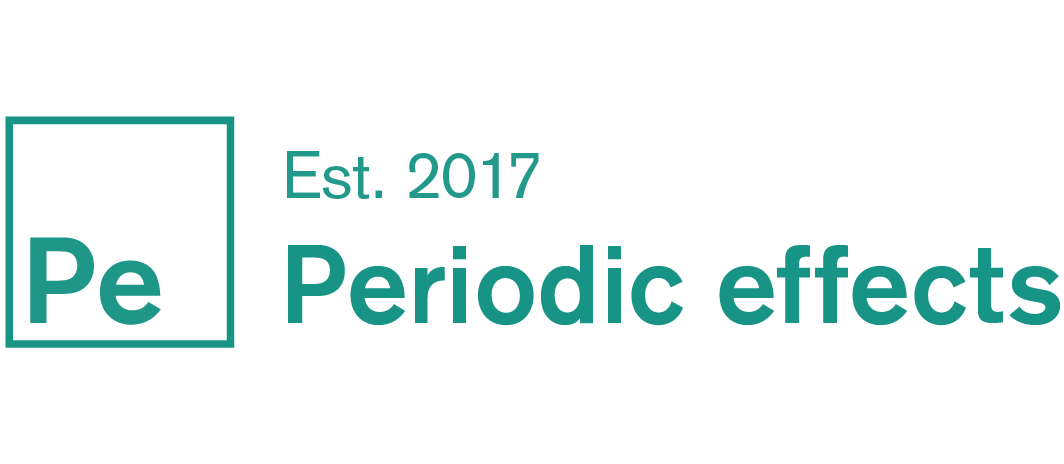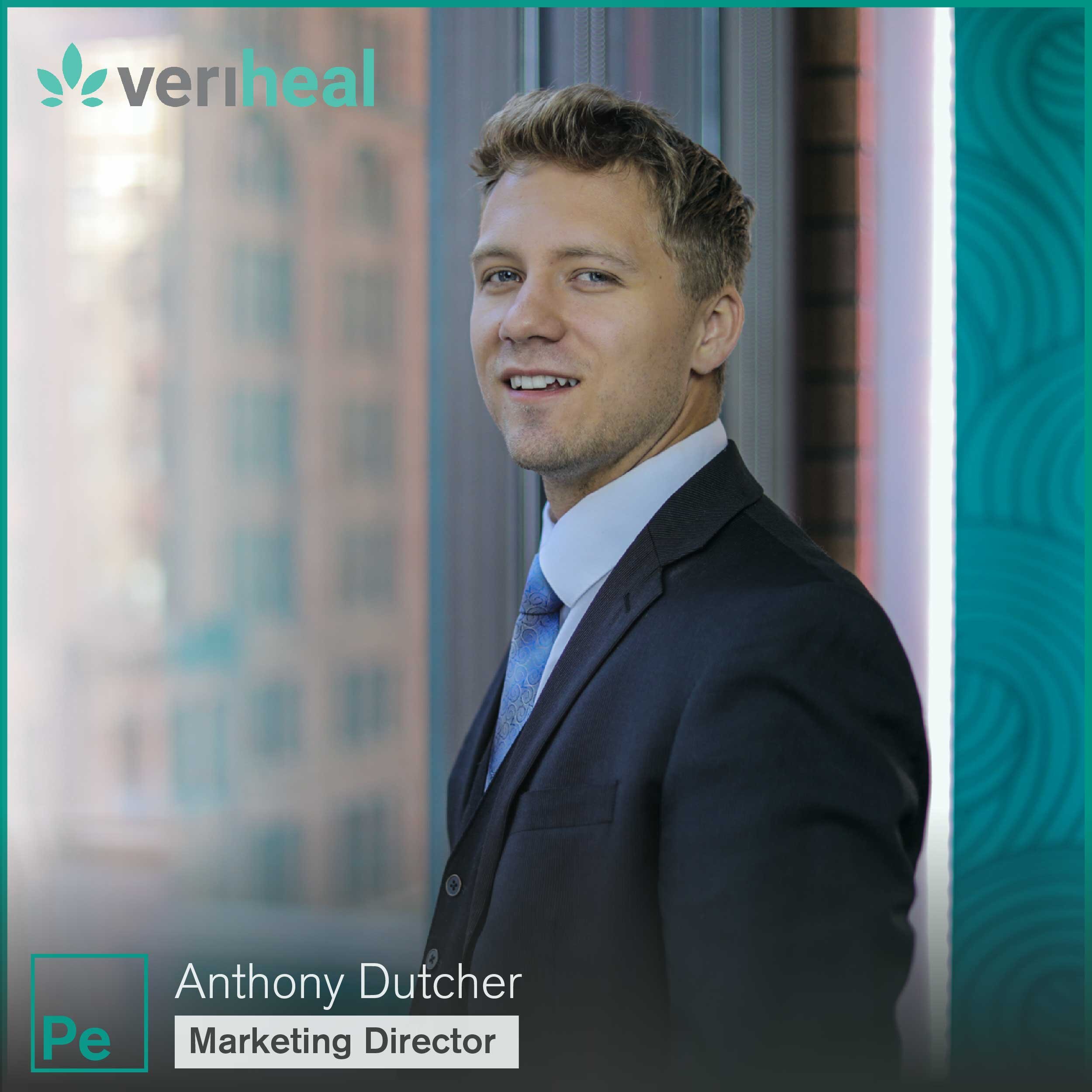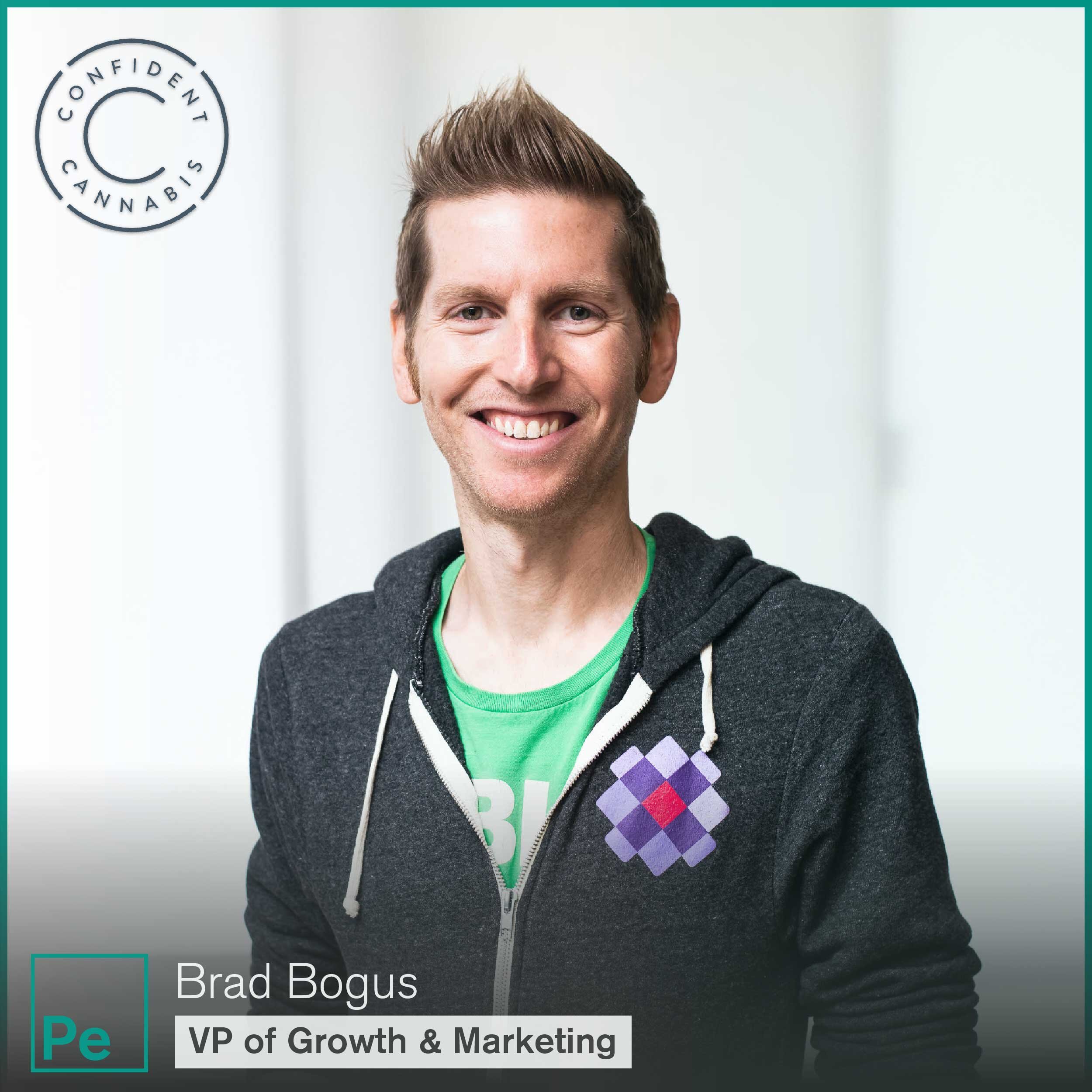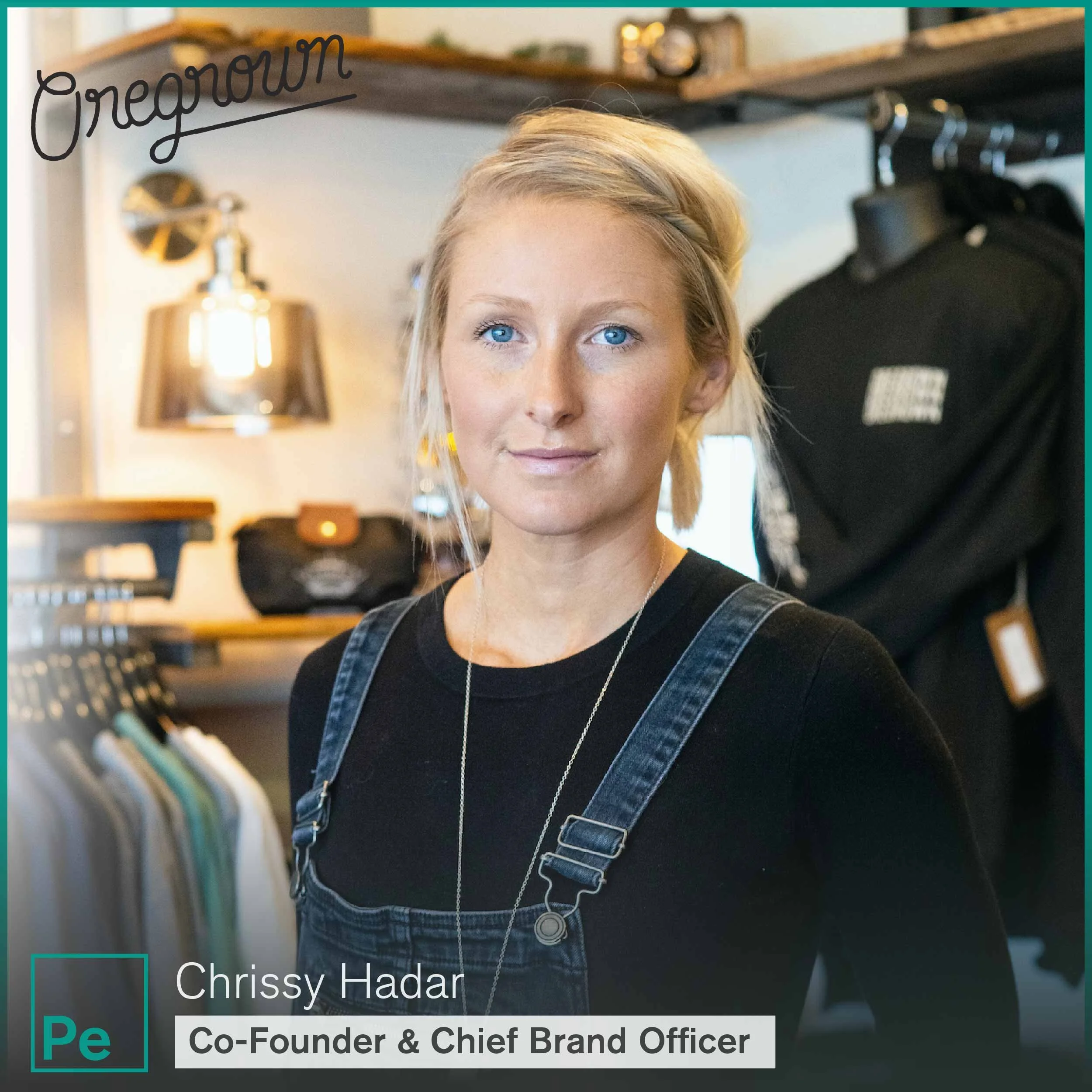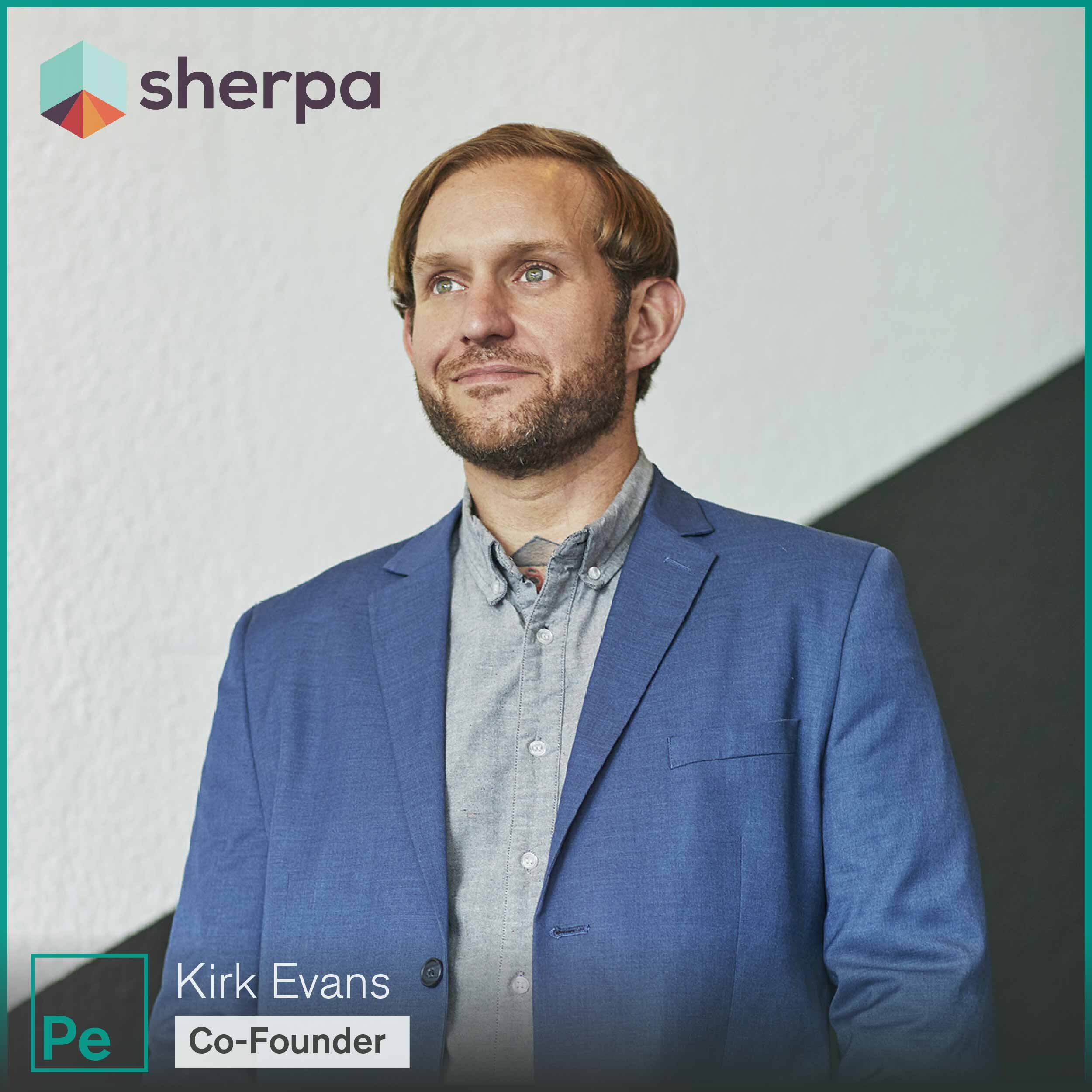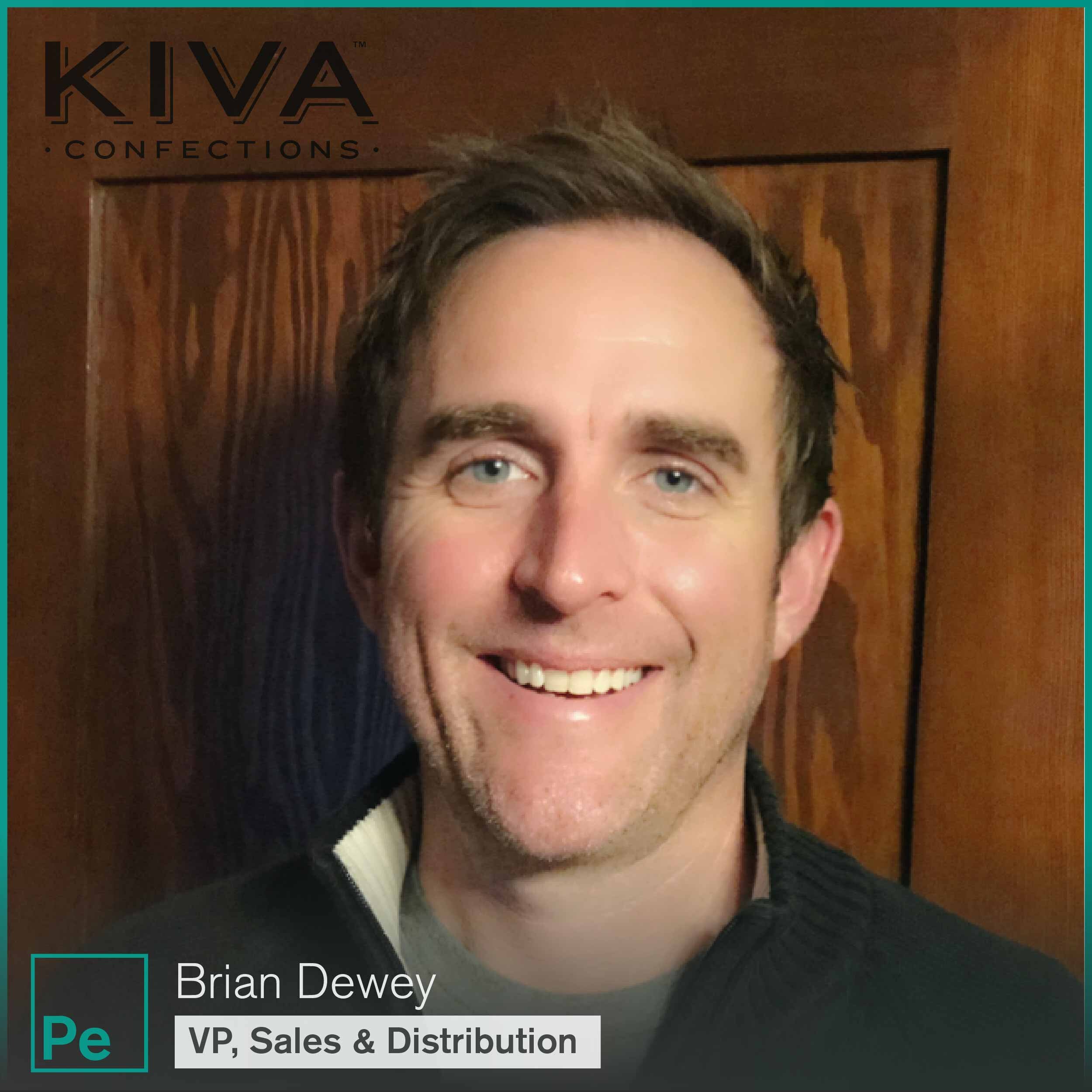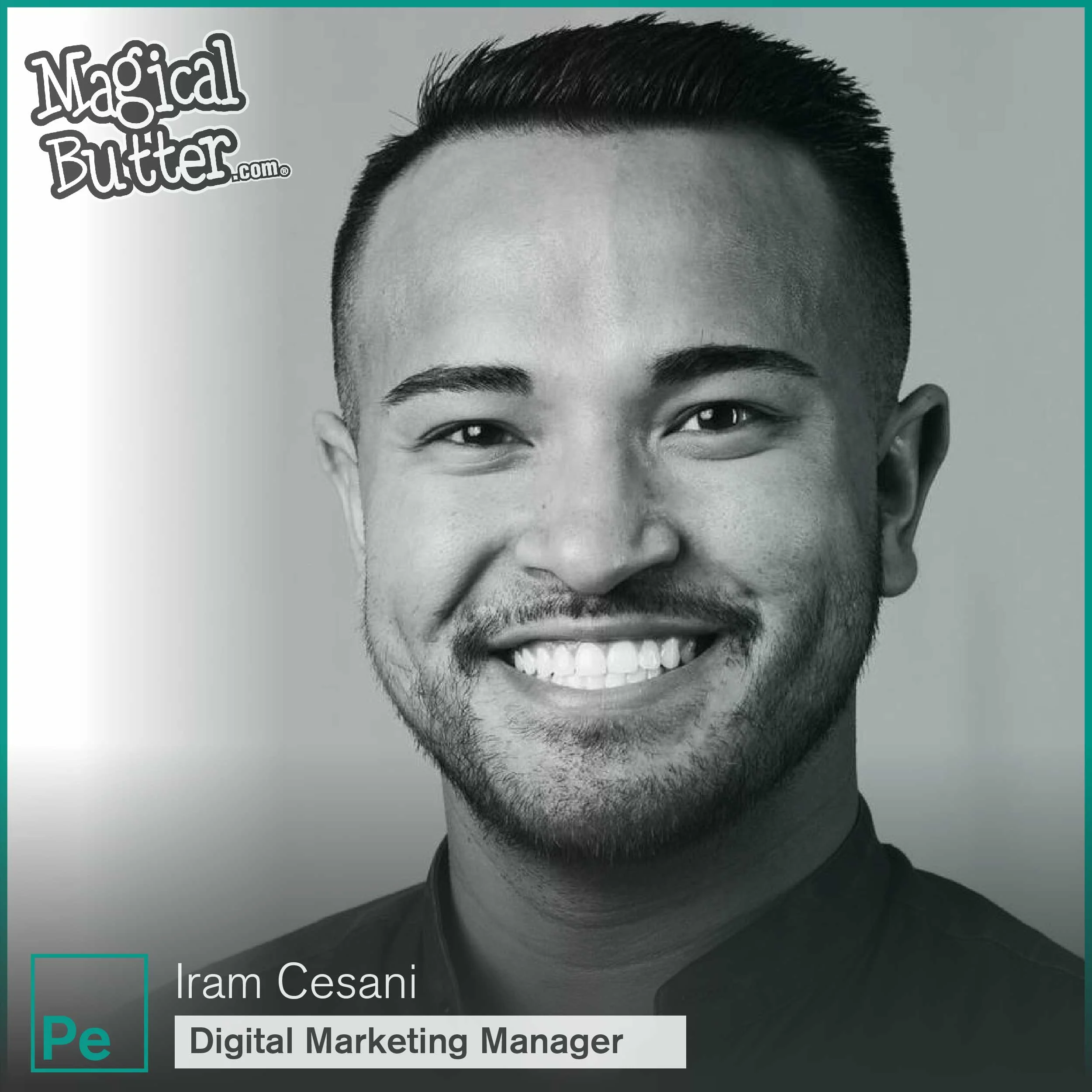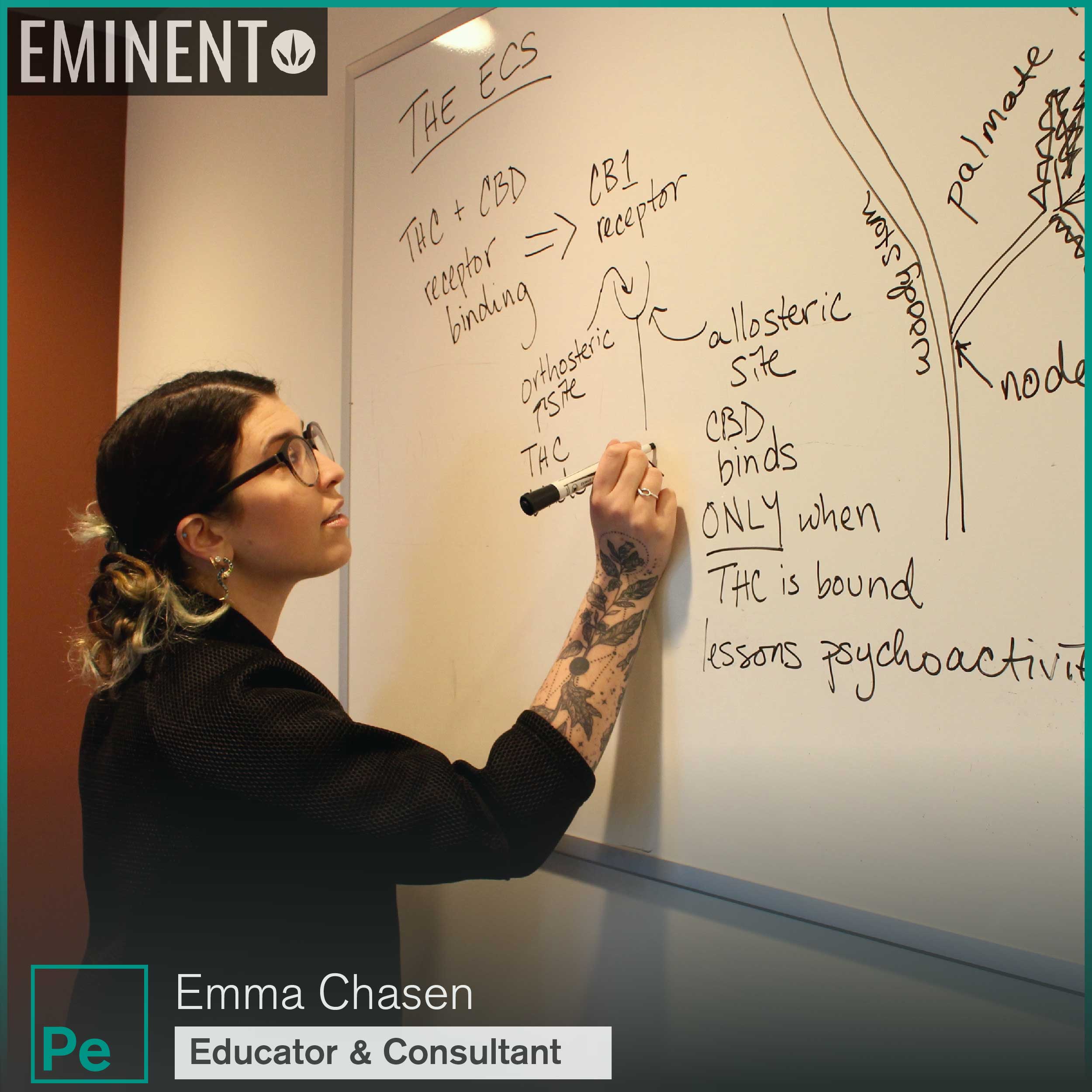Wayne Schwind, Host: Joining us today is Chrissy Hadar, Co-founder and Chief Branding Officer of Oregrown. I'll let her tell you a little bit more about Oregrown, but excited to have you on today. You guys have built a solid brand excited to learn your lessons, process, your thinking and, you know, what's going on there with the business how you built it. So thank you for taking some time with us today.
Chrissy Hadar, Guest: Thank you for having me.
Wayne: For listeners, just starting with a little context, kind of tell them a little bit more about Oregrown, what you do exactly, and then your role as well with the company.
Chrissy: Okay, so Oregrown was founded in 2013 here in Central Oregon, so we're based out of Bend, Oregon. We are considered a farm to table cannabis company, meaning that we do cultivate our own cannabis. So we are known specifically for indoor cannabis, and then we also produce our own extracts at our 84 acre farm out in Tumalo which is just about seven miles north of Bend. And then we have our flagship dispensary here in Bend, we've won Best Dispensary five years in a row. And here we, you know, kind of pride ourselves on offering an exceptional retail experience that is achieved by, you know, offering the best curated cannabis products from throughout the state. And then it's backed by our lifestyle brand, which includes sponsored athletes and then select branded custom Oregrown clothing and accessories.
Wayne: Yeah, yeah, I would love to dive into all those items. Have you from the very beginning - So co-founder, from the start, were you always focused on the brand and marketing, and building that end up of the business?
Chrissy: Um, yes. I'm definitely not - I can't really speak as much for the cultivation side of the business. I have a pretty vast background in retail. So I've managed a few retail stores. And then, when we started Oregrown, we initially had a logo set made up and we had some t shirts made and we threw them online and we noticed that people were actually buying them. And I think that that's when something resonated with us, that we had this opportunity due to the name Oregrown, which is a great name, it can't really be applied to many other states. And it really connects with our consumers. Whether they use cannabis or not. And we saw great opportunity there to kind of use this, you know the way that people think of Oregon as this outdoor utopia, and to basically brand not only our cannabis products but brand the states as this - as whether or not you use cannabis, we are destigmatizing cannabis through showing people that, people that use cannabis are active, they're out there in the - in the community, they're mothers, they're doctors, they're lawyers. And so instead of just telling people that cannabis is something to not be afraid of, we're showing them. (Yeah) I've been able to achieve that through the lifestyle brand.
Wayne: Yeah. I mean, you guys really have built such a strong brand, very recognizable in the state and probably outside of Oregon as well, along with not just that retail experience, the products, the cultivation. At the beginning, you know, a lot of brands are looking at other states for growth. Now federal legalization is becoming a topic. Was that a thought or concern, that with Oregrown, would that be hard to move that outside of Oregon or would it still be possible? Are you guys really saying no, we're going to stay focused inside of Oregon long term?
Chrissy: I think that right now our focus is expanding throughout the state of Oregon. We do have our wholesale products are carried in over 200 retailers throughout the state. We are continuing to open retail stores and some of the better known areas of the states. But I do think that Oregon, prior to legalization was always known for crafting some of the best cannabis in the country. And so I do think that Oregrown as a brand has potential in other states to be successful.
Wayne: Yeah, yeah.
Chrissy: At the same token, we do have plans to take other brands that we have in mind to other states.
Wayne: Okay. Do you brand your line, on the flower side or products, differently? Or is that still all - are all of those under the Oregrown brand umbrella?
Chrissy: They are all under the Oregrown brand umbrella. So all of the extracts that we make, whether it be through our 510, or in our partnership with Pax, or our dabbles - they're all branded Oregrown. One thing that we've done a little differently and if you can see some of our packaging via our website, is we actually have taken kind of a lesson from the craft brewing industry and branded the strains. So the strains are the main focus on the branding of our products, through the artwork, and then Oregrown is kind of hidden in there in a sense. And we really did that because we found, as a retailer going into other retailers to attempt to sell our product, so they carry it and sell it to consumers, that they didn't necessarily want to support the Oregrown brands and help us you know, gain followers. So we decided to brand instead, the strains or the flavors of the product, and that's been really successful. Yeah, and actually a lot of fun.
Wayne: Yeah, I could imagine and being able to create those different brand lines or stories depending on what the strain is, I mean, there's so much room for creativity there and in cannabis right now. I mean, there's no past examples or best practices right now, we're really building the ship as each step we take forward. It's really interesting time.
Chrissy: 100 Percent.
Wayne: With - so starting early on, a lot of, I mean such a focus on retail, you've built this flagship store in Bend, also kind of a lifestyle brand, which ties nicely into retail and the apparel that you make and sell from the beginning, what was the decision making on the strategy to be fully vertically integrated, grow and process versus say, we're just going to stick to retail, and then we could expand that way more? So what was kind of the thinking behind that?
Chrissy: Well, I think that initially we didn't even want to touch retail. And that's because there's so much involved in running a retail dispensary. But after we started the grow and the extraction side of the company, we realized that we didn't really love any of the dispensaries that we were going to and we weren't going to be proud for these dispensaries be carrying our product. So we really want to kind of control the environment in which we felt our premium product would be showcased to the customer. And in addition to that, you know, control the story. And so we went out into the real estate market and attempted to acquire real estate here in Bend to have our flagship dispensary, and found that very difficult. This was back in you know, 2014 prior to legalization of medicinal dispensaries here in Oregon. And you know, we just kept knocking on doors and there happened to be this little spot on Wall Street a few blocks away from the Patagonia store and the main strip of downtown Bend, with Deschutes Brewery and all of that and the owner of the building was just - he was insistent. He was like, I'm not renting to a dispensary and finally convinced him to meet with us. And it turned out that he went to the same high school that I did in Portland, I grew up in Portland. And we had a really good bond. And and eventually he let us rent out the space, and the location has served us well. I mean, we do have a lot of locals as customers, but we definitely serve a lot of the tourists that come to Bend during the winter and summer times for outdoor activities. And that also kind of ties into what helped shape the brand, because the brand really, you know, kind of evolved through the people that were coming through our doors. And so we were able to through opening our dispensary kind of, you know, create this, this culture in cannabis through the people that work here, through our branding, through our messaging, through our advertising. And I think that, you know, after opening your own retail store and realizing what you're capable of doing and the changes you're able to make in the industry. It's something I definitely wouldn't take back despite how much work goes into running a successful cannabis dispensary. It is not for the faint of heart.
Wayne: Yeah, yeah. As soon as you're customer facing versus making the products or growing in the background. It's a lot more - it's a whole different business model. But at the same time, you're now talking to the end consumers directly. There's not that middle person or dispensary, where it's hard for us, you know, to really make that connection to the end consumer. What were you know, you said the brand evolved based on who was coming in the store, what you were learning. What were some of those things that you identified as you evolved the brand or different product lines that were really learned from having the store and being able to talk to those customers?
Chrissy: Well, I think especially during the change from medical only to the recreational market here in Oregon, you know, you found that people were still coming in for medicinal purposes, right? Like they didn't have a medical card, because they never went through the process and the headache of getting one. But they were still coming and stopping by our store on their way home after a day on the mountain to get something to help them relax in the evening or a topical for their aching muscles. And so that kind of, you know, feedback that you're getting from your customers. It was just like, Okay, well we now know the people that come to our store. Yes, they use cannabis for, I mean, we like to call it adult use instead of recreational, so adult use purposes, but they're still you know, using it for what could be deemed medicinal purposes. And so they're - they're active people or they're people coming in to help them sleep or they're people coming in to help, you know, for stress. And so that really paved the way for the brand. And right now we really focus on outdoors. Because up until now Oregrown has been based here in Bend, but with the opening of our Portland store, you know, we'll be focusing on artists and people in the culinary world. And I think that we really just, you know, I see the brand as this living organism, it's nothing that's just stagnant. It's not necessarily a reflection of myself. It's a reflection of everybody that works here and everybody that shops here. So I think the Oregrown that you see now, as this outdoor lifestyle brand, will be entirely different in two years as we move into other parts of the state. And it'll be more of a reflection of, you know, a broader sample of people.
Wayne: Yeah. Yeah, that's interesting. I was kind of thinking with where you're at in Bend, and how you evolved the brand based on those customers. I mean, Bend is such an outdoor city. I mean, great skiing so many things to do there. I'm curious if bringing that store over to Portland, how you might shift the strategy, you know, obviously, here we have Mount Hood, and still a lot of outdoors, but much bigger city. How do you make a decision? You mentioned culinary and artists. When you're coming to Portland, and maybe we could talk about the other cities, you're also going to Eugene and Cannon Beach. How do you think about shifting the brand or refocusing, when you're going into a different city? Like what do you look for? What do you looking at? How do you kind of figure that out? Like what's the right focus to take?
Chrissy: Well, I think that I have a leg up in that I'm from Portland. So I have a lot of connections to people in Portland. And I mean, I think my main goal with moving the brand into Portland is to bring on more diversity. Obviously Oregon isn't known for being the most diverse state in the country, could potentially be one of the least diverse states. But Portland does have more diversity than Bend oddly enough. And so as you know, up until now, it's been a lot of you know, powder shots and surfing out, you know, at the coast and I think it's time to really bring on more diversity, and so that's something that I'm going to be focusing on as we move into Portland. Eugene - college town, I did spend one semester at the University of Oregon and - and I think it goes without saying that we'll be targeting the college market. And the coast has its own kind of little niche where - and that will certainly be an interesting store to manage because of the seasonality at the Oregon coast. Here in Bend we have, you know, seasonality as well when it comes to tourists, but we have the winter season for skiing and snowboarding and, and mountain activities, then we have the summer season for rafting and climbing. So at the beach, you really only have summer, and the summer is quite short. So it's trying to find a way to capture locals in the coastal region, but then really tap into that that tourist market during the hot season. And I think that Oregrown as a brand as a stands now is primed to do that at Cannon Beach.
Wayne: Yeah, see the surfing focus. There's a lot of that carries over what you're doing and Ben but the seasonality of it. Yeah, makes the coast a really fascinating area to operate a business. I mean, large swings in people coming through in the summer versus the winter. Yeah, it's interesting. You talked about Eugene, a college town, kind of focused on that. What are some of the things that would make a brand more appeasing or interesting to that college town or those consumers? Are there specific things when you when you try to focus it in that direction?
Chrissy: Well, one thing we've done successfully here in Bend, and this was kind of from the onset of the opening of our retail stores, we've been really involved in the community. And so we sponsor a lot of the big festivals here in town, like Winterfest, Summerfest, Oktoberfest. And then we have a lot of partnerships with nonprofits. Probably our most notable one would be the Humane Society of Central Oregon, where we have a fund set up to aid in the adoption and support of elderly animals. And by doing that, and going out into the community and being involved, is probably how we've gained so much notoriety here in Bend and I think places like Eugene, where there are so many events constantly going on. It's really just about getting out there and getting on people's home turf where they feel comfortable to come to your booth and ask you questions and look at your swag. It really - it kind of takes that first step of them coming through your door, that fear, away. And so when they finally come into your dispensary, or they finally decide to explore cannabis as an alternative to Western medicine, let's say, you know, they're immediately going to think of your brand, they're immediately going to think of that, you know, one on one experience they had at Summerfest or Winterfest or whatever events we end up doing in other regions and - and that's really been a way for us to kind of take down barriers and also gain a lot of foot traffic.
Wayne: Yeah, yeah, I hear you talk about all those things that I've heard before. You know, being a recognizable brand. And then I heard someone say actually, it's not - the goal isn't necessarily to be recognizable because you can be recognized for the wrong thing. But being relevant, a relevant brand. And that's what I hear a lot when you're, you're talking about the different cities and how you're going to focus. What do these people and consumers care about here? That's a, I really like that kind of thinking just as a mental strategy or exercise. Because it really shifts, I could see you taking the Bend operation, like this is successful. Let's just repeat it. But it's really interesting to me like, well, maybe we need to adjust this strategy. So I...
Chrissy: Well I think, if you just kind of take this cookie cutter mentality, then you're never evolving, right? And before you know it, you're going to be irrelevant.
Wayne: We see quite a bit of that. Yeah.
Chrissy: So you have to be nimble and you have to listen to your customers. And I think that Oregrown's been successful in that, yes, we buy and sell products that we use ourselves and that we like. And that model has always, up until now worked. But that doesn't mean it's going to work forever. And so it's about you know, getting the stores open, adjusting and listening to our customers. Yeah, and we're probably going to make some mistakes, right? You know, some things aren't going to stick, but you mean you have to try to consistently evolve. And to be clear, I mean, look, Oregon isn't California, let's say, where, you know, the places that we're going to do have a similar vibe. Right? Whereas like Northern and Southern California, they might as well be separate countries. And so, you know, we're not reinventing the wheel each time we open a store. That's not our intent as we move forward. It's just to take nods from each region that we go to integrate that into our existing lifestyle model.
Wayne: Right. Before you, you go into a new city or you're looking at a location, is there any specific kind of market research you do? And maybe how do you do that? As you try to figure out what your strategy should be?
Chrissy: Um, I would say there's a lot that goes into it. We're very picky when it comes to real estate and locations. I know that some people would probably say that we've been slow to the punch when it comes to opening up additional retail stores. That's simply due to the fact that A. we are still family funded and operated. And B. we're extremely picky when it comes to real estate. We recognize the fact that location is super paramount. We look at walkability scores, we look at the neighborhoods that we're going into, we look at parking, we look proximity to office buildings and high density living and, and traffic as well - bus lines, how many cars go by a day? And yeah. And it's insanely - it's a logistical nightmare, especially with the way that the wholesale laws are set up. And the transferring of product and having to have to let you know, wholesale hubs and whatnot. I mean, just side conversations I hear of logistical issues that come from wholesaling a product which I'm sure you're very familiar with is is really not my speed. But at the end of the day, I think that retail, you know, you also have this opportunity to create a really fun environment and and sell products that you really love and believe in, and a lot of our flower growers - you know, I don't always just want to sell Oregrown products. I don't want to monopolize our own store, but I do think that working, you know, with your own brands, on the wholesale side, but also bringing on some really craft small batch growers to kind of round out your selection. I mean, that's really our North Star. And and, you know, we're getting there.
Wayne: Yeah, I was gonna kind of ask that too. I mean, I think the brand is hugely important in that relevance creating that and, but at the same time, how important is the actual just physical location to you and then coming in later to these markets, is it harder to find those ideal locations because a lot of you know for any of these cities, I mean, the I think Oregon has the most dispensaries per capita of any state in the country. Does that make it even more challenging?
Chrissy: Um, it's, it's definitely competitive out there to to get real estate for dispensaries because of the bubbles and the lack of licenses going out. The real estate that we currently have, we have been sitting on for a little bit to make sure the timing was right to open and move forward with them. And so I would say that that being that we're picky in real estate has been a challenge that has probably taken us longer to get to our second store, which we have upcoming, upcoming here shortly. But I think that it's going to pay off in the long run.
Wayne: Yeah. What made you pick - Portland makes sense, you grew up there, you have that connection. What made you pick Eugene and Cannon Beach versus other cities in Oregon?
Chrissy: Well, let's see here. So Eugene and Cannon Beach. Cannon Beach, I think for us was a natural pick for the coast. I grew up going to Cannon Beach so I obviously had a lot of great things to say about it. I think that our brand resonates well with the the brand of Cannon Beach because I do believe that even a town can, can be branded it is you know, probably one of the wealthier areas along the Oregon coast and we do consider ourselves a premium brand. And it also attracts you know some of the most tourists to the Oregon coast every year and our location, right on the main street of downtown Cannon Beach, really can't be beat. You know the coastal market, with its ebbs and flows of of traffic is going to be interesting, say the least. But I look forward to the challenge of running a store that's based off of so much seasonality. Eugene is you know, I think a great - one of the greatest towns in Oregon. And you know, probably a, I think the building that we got that we have there is in such an up and coming neighborhood that it was Real Estate we couldn't pass up. And, and we look forward to having that built out by the first quarter of next year.
Wayne: Yeah. Were you still looking at other cities, trying to find the ideal real estate location? Or was it decided on those cities and let's stick to our real estate search inside of those cities?
Chrissy: I think we were pretty open to almost anything right? I think it all kind of came down to really finding these these premium locations within a variety of different areas that we were looking at at the time.
Wayne: Okay. One more question on retail, then I want to move over to kind of influencers and the marketing piece of it. But a lot of stores, their second third location, they stick local to where they're at and then maybe some don't, but then expand maybe to other cities after that and some you know, have a lot of store count. What made you not - decide not to stay in Bend, where it's your headquarters, it's close you know the brand would work and a second, third store in that city versus going to - you know these cities are three hours away, over a mountain pass, I mean that's hard to - difficult to manage when they're that much further away. Why not stay inside of Bend and open multiple shops there?
Chrissy: You know, we had a lot of internal discussion when it came to whether or not we wanted to open another dispensary here in Bend. I for one can say I was against it. I did have the fear that it would cannibalize some of our sales at our existing location. But at the same time, Bend is flooded with dispensaries and it just you know, didn't seem worth the effort to open another dispensary here. That's not to say that we are completely against the idea down the line. I think that we are just more excited to enter new markets and start getting traction in other cities.
Wayne: Yeah. Okay. So influencer marketing, you know, it's a big piece of marketing outside of the cannabis industry, but I haven't, you know, maybe more for some California brands and there's celebrities that are signing their names on to things. But I haven't really seen a brand take influencer marketing the way some other companies do and you really have. What is the thought before you started that strategy and maybe just let listeners know kind of what are the detailed finer details of influencer marketing?
Chrissy: Okay, so we have currently athletes that we sponsor so we give them goods that have our logo on it, mainly clothing, and then oftentimes a stipend for products in store and then potentially a small cash monthly bonus to promote the brand and basically be good stewards of the brand. And that kind of came about pretty, you know, pretty organically. I think we had, we found that we had a lot of really talented individuals shopping in our store. But they weren't just talented. They were also out there doing really good things for the community. They were kind, they were really great representations of the Oregrown brand. And so I think that word of mouth is super powerful, especially in a town as small as Bend, and especially with the amount of influence that can be had on social media. And we found the best way to also get free content for our social media was by sponsoring these athletes, right? And I don't know if you've taken a look at our social media, but we do not post any cannabis. And that is, I think, probably unheard of, for the most part in the cannabis industry. We don't post cannabis in and of itself, and we also don't post pictures of people using cannabis. And that we can get into later down the line if you want. But that was after a long series of our page being taken down and I'm sure something that a lot of people in the cannabis industry can relate to. And so we have people out there who use their social media to help promote our brands, but they're also just, you know, good represent - good representatives of the Oregrown brands and kind of help spread the message of what we're all about.
Wayne: Yeah, I would imagine as probably at least in Oregon, one of the first brands to really take this influencer marketing strategy when you're approaching these people. You're talking about cash stipend or free apparel. There's no competition in influencer marketing, no one else is asking. It's like kind of a no brainer for them. I would guess on their end for the most part to go Yeah, that sounds cool. Let's do it.
Chrissy: Yeah, I mean, the only time that we've had, you know, there has been some hesitation as we get into, you know, discussions with bigger and more well known athletes, is conflicts with other existing sponsors.
Wayne: Ah yeah, being connected potential.
Chrissy: Yeah, because a lot of them are sponsored by Red Bull and other big names and we haven't yet had any issues. So...
Wayne: Is there anything you do to - I don't know, it's hard with branding, but on the influencer side, to track effectiveness or metrics when - because you could potentially have 100 influencers or maybe 10 that are a little bigger. I mean, is there certain things you look for when you're working with an influencer to say this is working for us on you know, the brand or marketing or sales or things like that?
Chrissy: Um, I think right now our big focus is ensuring that we have content for social media. Yeah. And so these are people that I can call upon if we need to do a photo shoot for clothing, or, you know, have them just shoot when they go out on the mountain and send us photos. So we always have content, new content coming in. So the brand always kind of feels fresh. And that's why as we go into Portland, it's going to be just as important to find people there who are doing what they love. And, and bringing them on to the team to kind of bring in a new perspective and a fresher, a fresher take on the brand.
Wayne: Yeah, that's really smart. I never thought of it that way. I you know, you're getting the exposure through their audience. But at the same time, the content they're creating does allow for those things that you mentioned. Do any of your influencers or have you also looked at, like writing blogs and a video production or any of them doing that kind of thing for you as well?
Chrissy: We do have so we do have some of our athletes usually kind of travel with photographers so they have friends that are photographers that that you know the kind of go with them places, so we haven't brought anybody on like that yet but that is a great idea something I'll look forward to doing in Portland.
Wayne: Yeah. Yeah. With Pax labs, I'm curious how that started initially and on the branding side aligning Oregrown and I think you did the manufacturing for their pad or pods making those. How did that deal kind of come about and what was the marketing/branding thought behind agreeing to that partnership and doing that?
Chrissy: Um, so I was in the dispensary one day and a guy came up to me, and he had this battery device thing that I had never seen before and he was asking if we had sold - If we sold the pods that went inside of it and I was like I've never even seen this before, what is this? And he had just gotten back from some Expo in Vegas where he had received a Pax Era device on the expo floor, and I immediately called my Pax rep, because at the time they were providing us with the Pax 2 and the Pax 3 flower vaporizers and I asked him what it was all about, and they had just rolled it out in Colorado. So it was the Pax Era platform. So basically Pax is a technology company that goes out and finds Brand Partners, being cannabis companies, that make extracts that can go into their pods and then sell them in the state under their license. So I had a brief conversation with some people at Pax and a few days later they flew one of their VPs out to meet with us. And at that time, they were rolling out the Pax platform in Washington, and they were going to almost do kind of a flyover of Oregon. But we really felt that the Pax vaping experience would really resonate with the Oregon market. Because of its sleek design, its ease of use, and the fact that you can really build these pods with some really quality oil. And we essentially were their only filler here in the state of Oregon until perhaps a few months to a year ago. I've lost track of time and since then they brought on other Brand Partners. But it's definitely one of my favorite ways of vaping. And then we recently came out with our own 510. So not only are we fillers for the Pax Era platform, but we do sell our own 510 vaping systems.
Wayne: Okay, how big was and still ongoing the vaping crisis for you there? What consumers were asking how you approached it? Like, I mean, what was that whole experience and still ongoing experience like for you?
Chrissy: Um, I think I, I can definitely say it did impact sales. And if anyone tells you that didn't, they're not being honest because I've seen it on the wholesale side. And I've also seen it on the retail level. But what was interesting about that is that it did impact the sales of vaporizers but it increased the sales of edibles and flower. So yeah, so for a very long time I feel that the Oregrown store is - you know, in a lot of ways because we do make our own vape and dababbles a vape store more or less. Like our flower numbers are pretty consistent throughout the year. But really when the vape apocalypse came, we saw our per-weekly flowers sales jump up two pounds. So while it did affect the amount of vape units that we were moving, and dababbles for that matter, it really just pushed people back to flower, which is I think, kind of, you know, it's an okay thing. You know, it's the purest form of consuming cannabis, edibles are always going to be there as well. And at the end of the day, now that the ban has been lifted, I think that business is kind of tracking as usual, people are still a little weary of vape. But you know, at the end of the day, we sell products that we would use ourselves and so we can stand behind every product that we sell.
Wayne: Yeah, long term if the you know, the vape or the extract brand really becomes the shining star or maybe it's the vape extracts and retail, could you see yourself potentially walking away from cultivation or, you know, whatever segment of the industry it might be? Or what would be the market conditions that you'd say, okay, we're going to kind of discontinue this line of our business and go more all in more narrow here. Did you see that occurring?
Chrissy: Um, you know, it's hard to say, because I really tried to disconnect myself from the cultivation side of the company, just because, I mean, one only has so much bandwidth, right? You know, I think - I think there was a moment there where the Oregon market felt very flooded with flower. But I think we're kind of taking a turn here and seeing that maybe we aren't as flooded as we thought. And I'm seeing brighter days ahead for the cultivation side. But really, I think we shine very brightly when it comes to retail and the experience that we offer. And I think it's easier to differentiate yourself on the retail side than it is on the wholesale side. There is obviously you've taken away that barrier to entry and being vertically integrated. You know, you aren't having to go knock on other people's doors to try to get them to sell your product. So, really what we're trying to do, and what we will likely do is create a situation where we are producing enough product on our own to supply our own stores, and rely less on third party dispensaries to sell our product.
Wayne: Yeah, that makes sense. And as you get a few more stores open, you just see - and this is just business in general, but definitely cannabis. It's like more and more, more bigger, bigger, bigger and, you know, get into as many stores as possible. But I also I mean, I really like a strategy of we make quality products, it's good, it's good value, the price is more premium, why don't we just make what we can sell in our own stores? And you can run a really successful business that way, without, you know, growing as big as possible, intentionally staying more focused. That's interesting as a strategy to do that versus trying to be in every store there is an Oregon.
Chrissy: No, and that's exhausting, right?
Wayne: Haha, yeah. You mentioned I don't know how much you maybe know about this on the cultivation side. But you mentioned the Oregon market being flooded. I'd like to at least get your thoughts. I mean, a year ago, the state said, we have a six year supply of flower. If we stop producing, it's gonna last six years, the prices are falling, everything's bottoming out, race to the bottom. And then all of a sudden, like six months ago is like, oh, the prices are coming significantly back up. Well, what happened there?
Chrissy: Yeah, where did all that weed go?
Wayne: I mean, I understand a small amount potentially going to blac/grey market but not the amount they were discussing, like that just doesn't disappear, especially when it's in the seed to sale tracking system. It's really hard to get that like out of your system illegally. Was it just a miss - analytics guests or calculation on what we actually have? Like? Do you have any idea what happened there?
Chrissy: Oh man, I would hate to speculate...
Wayne: Cuz that surprised everybody. All of a sudden...
Chrissy: I would say that there's probably some leakage to the black market, I would believe that a lot of people went out of business, so I wouldn't be surprised if a lot of it was wasted or went to extracts, which is what is commonly done with excess cannabis. But I, you know, what I do know is that the asking price for flower today is more than what it was six months ago. I mean, everyone thought that you know, as the price per pound was going down that it just wasn't going to stop. And I strongly believed that we had bottomed out. And, you know, even from a retailer's perspective, like I don't, you know, like seeing $700 pounds on the market. You know, I don't like seeing $3 grams being sold at dispensaries. I think that our growers deserve more than that, right? Like that's a lot of work to grow cannabis, whether it's good cannabis or bad cannabis, a lot of work went into all of that. And so I want to see the price per pound go up, I think that there is a happy medium in what the consumer will pay and what you know, and how much money the growers should be making and then the margins of what the middleman should get. And I'm happy to see that the price per pound is going up, I'm happy to see that there's less on the market than there was before. And I think that a lot of that can just be attributed to waste, a lot of going to waste, and not being up to par where dispensaries didn't want to purchase it. It going to be made into extracts and then potentially some leakage, but I wouldn't know how that would occur, like you said in the seed to sale tracking system, that would be a tough one.
Wayne: Yeah. How much do you think, I'm curious of if you're looking at this side - hemp CBD. A lot of farms potentially switching to hemp, and his Oregrown looking at hemp lines and products, anything around that?
Chrissy: Um, I don't know much about olcc licensed growers switching to hemp, I think if anything, they're adding on a separate farm or license to their existing olcc license, because you'd be kind of a fool to give up and OLCC growing license at this juncture, if you're set up appropriately and in compliance with state law, Oregrown does have plans to come out with a CBD line. We would be foolish not to. but I don't that doesn't. That wouldn't mean that we'd be growing the hemp ourselves being from Central Oregon. It truly amazed me this last summer how many alfalfa fields were switched, were switched over to hemp and how how much of it went to waste. So I think that a lot of people have jumped on the hemp bandwagon after the federal laws were lifted, and I think a lot of people learned some really expensive lessons this last summer. Specifically, you know, if you're going to grow something, you better know what you're going to do with it when it's done. We saw a lot of failed acreage around our property this year. And that's never, you know, fun to see. But I think next summer, people will be more prepared, and we'll see more success coming out of him crops out of Oregon.
Wayne: And you said a lot of it was wasted - was that because they just didn't have an outlet to sell it and they couldn't move it or an overgrowth or what happened there?
Chrissy: I think that they weren't prepared to how they were going to dry it. Obviously drying, you know, when you have that much material, is pretty important to prevent mold and mildew and other - and other issues. In addition, we had, you know, some strange hail storms the summer that really destroyed some crops. And yeah, at the end of the day, they had no one to purchase it to make it into oil to make it into products and that - and there was certainly a surplus of hemp coming out of the state of Oregon this year.
Wayne: Yeah. You mentioned you know, growers. I think we have a lot of growers that listen to this and a lot, either were or still are struggling. And you said if they had an OLCC license, they're set up, they're compliant, just to get rid of that wouldn't be wise. If they're struggling right now, what would someone do with an OLCC license if they're compliant? Like is there a strategy they could use just, that's not just kind of walking away from it all on their end that might help?
Chrissy: I would attempt to sell it.
Wayne: Okay. Are there still, like buyers on the grow side then, are people looking still to buy licenses? Because I think for a while there it was like - Oregon is full, like if don't, that's not the place to go to start a business now.
Chrissy: Yeah, yeah, um, but also depends what you're trying to grow, right? You know if you're trying to grow just as much cannabis as possible and you know, going into it without a way of differentiating yourself in the market, you probably won't be successful. But, you know, I think that the craft growers who are hanging on tight, you know, they're not making a lot of money but they're making just enough to get by, or maybe they've had to bring on somebody to cover their losses. I think if they hold on tight enough, and they continue to put in the work to, to create a premium product it's going to pay off in the end.
Wayne: Yeah, yep. Yeah, the quality and then the brand with the good product. That's where that there seems like there's room for that. Yeah, but as far as volume there's it's definitely been saturated. Interesting. Well, Chrissy, I really appreciate the time. A couple ending questions I like to ask guests as we wrap up. Number one, Are you hiring at all? Anything that might be an opportunity for a listener? And then the other piece if you want to let them know about the soft opening, or your other stores, potentially, um, anything around those that you want to let listeners know about?
Chrissy: Um, let's see here. Are we hiring? We're always looking for amazing team members, always. So if you're interested in a job at Oregrown, you can just go to our website and contact us through there. It's just www.oregrown.com. And let's see here. In the next couple weeks, we'll be opening our Portland store which is on the corner of Northwest - or excuse me, Northeast 12th and Couch in Portland, and we will be opening our Cannon Beach store in January of 2020. So just next month, and then our Eugene stores should be open in the first quarter of this next year.
Wayne: Awesome and where can people find you online or follow you to look for those store openings?
Chrissy: Okay, so we are just obviously our website www.oregrown.com is always the best place to go. But we are also pretty active on Instagram. So it's @Oregrown on Instagram, or @Oregrowninc.
Wayne: Awesome. And then just a clarification on the hiring piece - are mostly you looking for budtenders right now? Or could it be marketing, design? Potentially any type of position?
Chrissy: Any type of position.
Wayne: Awesome, someone passionate and like that?
Chrissy: Anybody that's passionate. Yeah. And being familiar with our brand. You know, I mean, that's kind of a tip for just, for coming in and trying to look for a job, is just being familiar with our brand before you come in as always, as always helpful.
Wayne: Yep. Awesome, Chrissy. Well, thanks again for the time. I think this will be a good one for listeners, branding and marketing in cannabis is a new frontier and I learned some new ones from this conversation. So thank you.
Chrissy: Oh, thank you so much. I appreciate your time too, have a great day.
